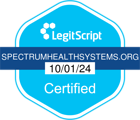Telegram.com
Date: 11/3/17
MILLBURY – Driving into the parking lot behind the nondescript industrial building at 50 Howe Ave., one would think that, aside from the two security guards, this could just as easily be a trip to the post office or hardware store.
Adults of all ages, dressed for work and going about their business one morning last week, stood politely in line just inside the door, waiting their turn.
But they were not waiting to buy postage stamps or nails. They were waiting to get their daily dose of methadone, a narcotic that helps people wean off of deadlier opioids such as heroin and strong prescription painkillers.
It’s been roughly a year since Spectrum Health Systems was granted site plan approval by the Planning Board for a medication-assisted outpatient treatment center here.
In spite of vocal opposition from residents and a failed lawsuit against Spectrum and the Planning Board, the treatment center opened quietly July 12 and, according to police and Spectrum officials, has not caused any disturbances.
“We’ve had no complaints here at the Police Department,” Chief of Police Donald P. Desorcy said. Speaking to fears raised at public hearings of drug dealers roaming the streets, people loitering in the neighborhood and traffic in chaos, the chief said, “I think they had a misconception of how this was going to work.”
Chief Desorcy said that Spectrum has been “a good neighbor.” The security cameras it installed outside the clinic were even helpful in solving a theft at a nearby business, which turned out to have involved an employee of the other business.
“I’m more concerned about those who aren’t getting their treatment,” the chief said.
Matthew Baril, 48, of Grafton, was one of those waiting his turn at the dispensing window. When he was called, Ryan Flattery, a nurse, checked his information on the computer and a liquid dose was automatically dispensed into a cup, according to doctor’s orders.
Mr. Baril shared his story, saying he grew up in a family construction business and studied mechanical engineering. He opened a landscaping business after feeling frustrated as a draftsman for Wyman-Gordon, and soon gained a following as a stone wall builder.
The heavy work took its toll, damaging Mr. Baril’s back.
He started taking Tylenol and then ibuprofen for the pain. Soon he stepped up to an opioid, Vicodin.
“It was one a day, at the end of the day, with a couple of beers,” Mr. Baril said. “I was laying 30 tons of rock a day. At the end of the day, it was like a necessity.”
Vicodin stopped being enough. “So you take Percocet, you go to the next level. And it was all doctor-prescribed,” he said.
In the construction trade, you have to keep working to make money. Mr. Baril said, “Push through pain with more opiates” became a way of life.
The prescription painkillers, eventually supplemented with pills bought on the street, triggered changes in Mr. Baril’s brain, something he never thought would happen, and he became addicted.
After several attempts at detox, which didn’t succeed in keeping him off drugs, Mr. Baril’s doctor suggested he try methadone treatment.
Mr. Baril started going to Spectrum’s outpatient center on Lincoln Street in Worcester and then switched to the Milford location. He jumped at the chance to go to Millbury instead, five minutes from home.
“It’s not easy. You have to give it a lot of work,” Mr. Baril said. “The guidelines are strict. But the medicine is helping.”
He’s also found help from participating in group counseling sessions, which he described as “almost like college-level psychology.” He understands anxiety and other mental health disorders that are often intertwined with addiction.
Mr. Baril’s journey strengthened his religious faith. He joined a healing ministry and now is studying to become a Roman Catholic deacon.
“I want to help people,” he said. “That’s my faith. That’s a gift to me.”
He added: “I want to let people know that methadone is a good thing. It’s gonna help. It’s gonna save their lives.”
Spectrum’s Millbury outpatient center currently serves 195 patients, who come in for a methadone dose seven days a week, from 5:30 a.m. till noon.
Mondays through Fridays, they attend counseling sessions and groups later in the day.
“I think there’s a perception before we opened, and then there’s reality. There are two significantly different pictures,” said Kristin Nolan, vice president of inpatient and outpatient services for Spectrum. “These were folks that were already in Millbury, that need this service. So many people in this community were traveling into Worcester.”
President and CEO Kurt A. Isaacson said 1,500 people receive outpatient medication-assisted treatment at Lincoln Street in Worcester. The company made the decision to open a new site in Millbury because many were coming from the area and surrounding small towns.
“It’s not an urban issue anymore,” Mr. Isaacson said. “It’s a cross-socioeconomic disease.”
Police regularly stop by and Mr. Isaacson said he welcomes their involvement. Other businesses in the complex have been curious and have stopped in for informal tours.
As Spectrum staff were showing off their facility, a woman with gray-streaked hair, who was receiving her dose of methadone said, “This is a wonderful clinic. We love it.”
“Clients have mentioned they’re happy with the space,” said Karen Hewitt, program director for Millbury and Milford outpatient centers. “They hold each other accountable.”



